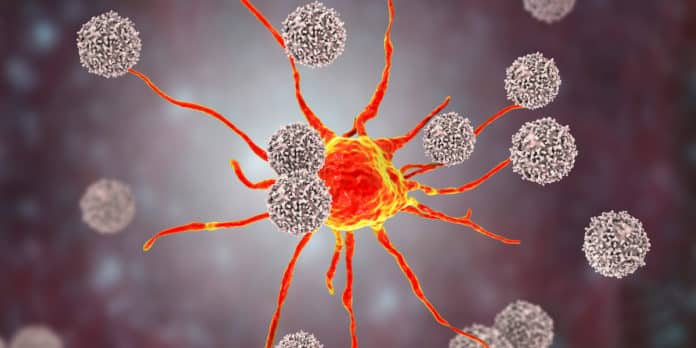Promoting anti-cancer immunity using natural immune-boosting protein
A multi-directional approach is required for cancer treatment. Oncologists are still researching new approaches to tackle cancer in a better and effective way. A natural immune-boosting protein called STING, which can induce anti-tumor immunity in the body was discovered by scientists. The outcomes of the study are released in the journal Science.
What is STING?
STING refers to the Stimulator of Interferon Genes. Whenever there is a viral or cancerous invader in the body, the STING stimulates the immune system. STING protein comprises of 379 amino acids and is found in different endothelial cells, epithelial cells, hematopoietic cells, T cells, macrophages as well as dendritic cells (antigen-presenting cells).
STING functions as a molecule that controls the transcription of various genes. The genes include the host defense system’s genes which produce immune cells, like type I interferons and pro-inflammatory cytokines, when they encounter any abnormal DNA. This abnormal DNA is typically the pathogen that attempts to attack the cells.
Cancer treatment using STING
Scientists have already mentioned in many other researches that STING promotes anti-tumor immunity. When an abnormal DNA is detected in the blood, the STING gets activated. However, the concern is that the activation of STING is short-lived as this DNA does not stay in the blood for long.
Researchers at Scripps Research declared that they have discovered a set of small diverse molecules that can help STING activation.
A STING-activator, called SR-717, which activates the STING protein similarly as its natural activators in the body, was discovered by Dr. Luke L Lairson along with his fellow researchers. It was observed that both SR-717 and a natural activator bind to the same site on the STING protein, while the researchers studied the interaction of the activator on cellular levels using x-ray crystallography.
The same modification in the shape of the protein was produced by both these artificial and natural activators.
Additionally, the researchers tested SR-717 on a group of mice with aggressive melanoma who were orally administered with the STING-activator. The outcomes revealed that the growth of the tumor was suppressed by SR-717, and prevented the spread of cancer in the body (metastasis). Additionally, SR-717 boosted the immune system’s anti-tumor defenses which include natural killer cells and CD8+ T cells.
Conclusion
Still, the research on the STING-activator to form a new anti-cancer treatment is ongoing, which can either be used alone or with other treatments.
Moreover, researchers believe that using a systemic STING-activating molecule, they would certainly not only be able to use it for the treatment of cancer and other contagious diseases however, would additionally allow them to research more about the STING-dependent anti-tumour immunity.
Promoting anti-cancer immunity using natural immune-boosting protein
Author: Sruthi S



